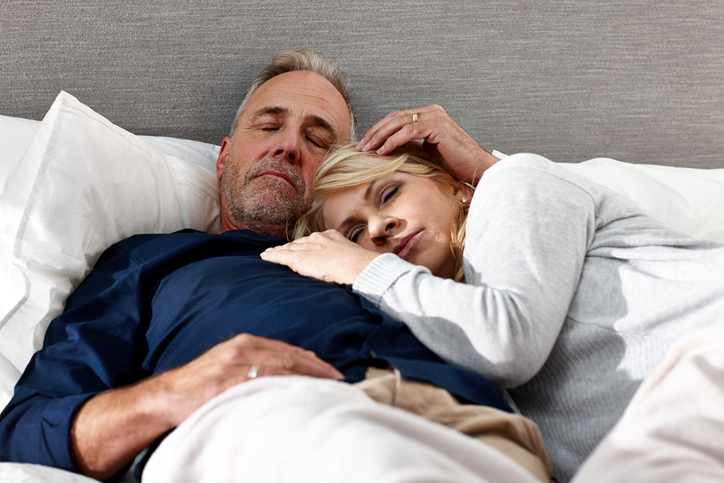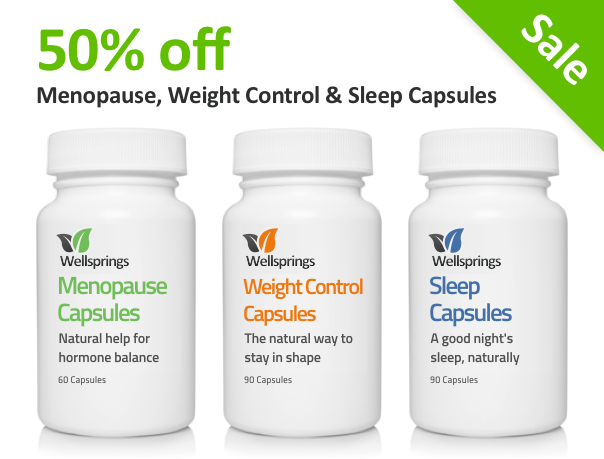How To Naturally Help A Low Libido
There can be many reasons for a lack of interest in sex, but as progesterone increases sex drive in women it’s a good place to start, as are these other helpful suggestions.

When Dr Shirley Bond and I used to give regular menopause seminars, the question of low libido often came up.
It is distressing when a normal, healthy sex life dwindles, desire decreases and often disappears altogether for a time, if not permanently.
Sexual problems affect an estimated 20 to 40 per cent of women at this stage of their lives, so you are not alone if you’re having difficulties.
Why does it happen?
It’s back to those changing hormones as at menopause we lose progesterone altogether, oestrogen declines and the small amounts of testosterone that women produce also falls. Together this affects your sex drive, mood and energy.
It is the falling levels of oestrogen that many women notice first, as this is the hormone that helps the body produce collagen, a protein that keeps tissues healthy and is needed for lubrication.
The declining amount of oestrogen can affect sensation and the ability to orgasm, while the drop in natural lubrication can cause uncomfortable dryness and itching.
It is believed that in 50% of women who do report sexual difficulties it is this dryness that is a major symptom causing distress for them and their partner.
Reduced oestrogen means that vaginal tissue can thin, weaken and shrink, which can make sex uncomfortable, even painful.
Added to that is the fact that many women also start to experience related conditions such as bladder weakness, prolapse and recurrent urinary infection which also don’t promote an active interest in sex.
Oestrogen levels help keep the vaginal skin and muscle supporting the pelvic floor strong and hold everything in place, but the loss of oestrogen can lead to bladder weakness and leakage when laughing, coughing or even sneezing.
As part of the ageing process, of which menopause is a marker, many women also suffer a loss of confidence and anxiety about physical appearance and attractiveness as well as the changes in lifestyle that can occur at this time.
You may be facing an ’empty nest’ as the children have left home, or worrying about having to care for elderly relatives.
Worry, anxiety and stress can all decrease sexual desire so it is not just down to your hormones.
What can help?
Unfortunately libido is a tricky one to get right as so many factors, both physical and emotional, can be involved. However, we do know that progesterone can increase sex drive in women, and is the precursor for testosterone production, so many women do find that helpful.
Apart from lack of desire, the physical discomfort can often be eased with either an organic, water-based lubricant or, if the dryness is more severe, or in cases of vaginal atrophy, then additional oestrogen will be needed.
This may be either from a locally applied oestrogen cream or with a combination bioidentical cream such as 20-1 which can be used vaginally. It is effective than a lubricant as it contains both bioidentical progesterone and two natural oestrogens.
Exercise is often recommended, particularly if you have a weak pelvic floor, and you can find these online or use a pelvic floor exerciser.
A study at the John Radcliffe Hospital in Oxford found that women who did specific pelvic exercises reported a 70 per cent improvement in their stress incontinence. If damage to the pelvic floor is severe then you may need some minor surgery to repair it.
HRT is often suggested to replace the missing hormones, but many women prefer to avoid this because of the well-known and documented side effects. Also the Pill may be suggested and it is frequently referred to as containing progesterone, but it does not. It has synthetic progestins which also have associated side effects.
A natural bioidentical combination of progesterone and oestrogen can be as effective and without any of the associated side effects.
Mood swings, anxiety and depression are often worse during peri/menopause and women suffering these are often given antidepressants rather than hormones, as they are believed to boost levels of the chemical messenger serotonin.
This is the ‘feel good’ hormone, though again a combination of bioidentical progesterone and oestrogen has been shown by Dr Jeffrey Dach in the USA to be very effective at helping women naturally overcome mood swings and depresssion.
Also, the skin of the face and body generally lose firmness and moisture at menopause so women feel less attractive to themselves, and their partners, so hormones can help there too.
More information:
If you are not sure which hormones you may need to supplement, then the article below can be helpful.
https://anna.blog.wellsprings-health.com/which-hormone-or-hormones-might-you-need/

















